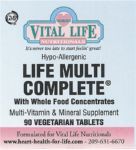|
|
||||||
Plant Sterols Can Lower Your Cholesterol Naturally.
Your heart will say "thank you" for Plant sterols are currently being lauded as a natural, cholesterol-busting wonder ingredient, and can be found in several premium-price margarines, milk products and yogurts. Plant sterols can be found naturally in small quantities in many fruits, vegetables, nuts, seeds, cereals, beans, and other plant foods containing fats and oils.
The cholesterol-lowering properties of plant
sterols/stanols have been known since the 1950s. In recent years, the
medical community has endorsed consumption of plant sterols/stanols as a
safe and effective means of promoting good cardiovascular health.
A recent analysis of published controlled, double-blind,
randomized clinical trials of sterol or stanol esters reported an 11% mean reduction in LDL level.
Beta Sitosterol
They function as cholesterol-lowering agents in blood by blocking the absorption of cholesterol from food during digestion and also by blocking the re-absorption of cholesterol manufactured in the liver.
Do any government or
health associations recommend plant sterols?
The FDA also published an interim final health claim rule in September, 2025, affirming the benefit of plant sterol and stanol esters in reducing blood cholesterol levels and reducing coronary heart disease risk.
Eat your fruit and veggies and take your
vitamins.
Cautions In particular it advises that the foods may not be appropriate for children or for pregnant and breast-feeding women.
Australian Study of Plant Sterols Phytosterol-containing foods are valuable additions to other cholesterol-lowering treatments. They should be considered for all patients with increased cardiovascular risk factors in whom LDL reduction is desirable. The only recognized possible adverse effect is reduction in some carotenoids in plasma, but this can be overcome by eating an additional serving of yellow or orange fruit or vegetables. PLANT STEROLS (PHYTOSTEROLS), are present in high concentration in vegetable oils before they are refined The two main sterols that are widely present in plant foods other than oils are beta sitosterol and campesterol, and most of us eat between 150 mg and 400 mg of phytosterols daily. Consumption by vegetarians is even higher and may account partly for their lower LDL levels.
|
Need more energy?
|
|||||
|
Consumer Notice: |
||||||
|
Copyright
2025-2005 Heart-Health-For-Life.com. All Rights Reserved.
|
||||||
 A survivor unlocks the
mystery of lowering cholesterol with plant sterols
A survivor unlocks the
mystery of lowering cholesterol with plant sterols